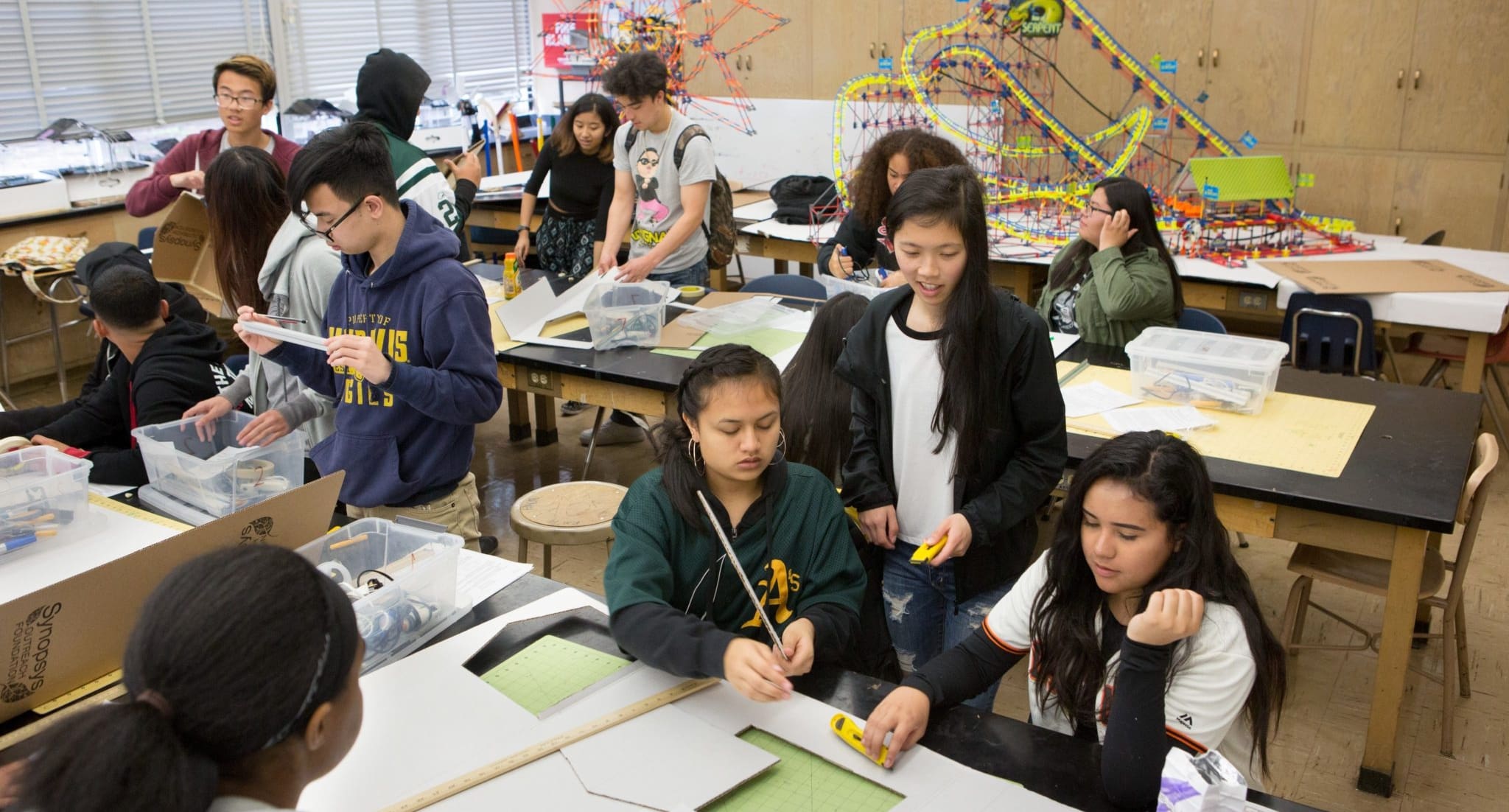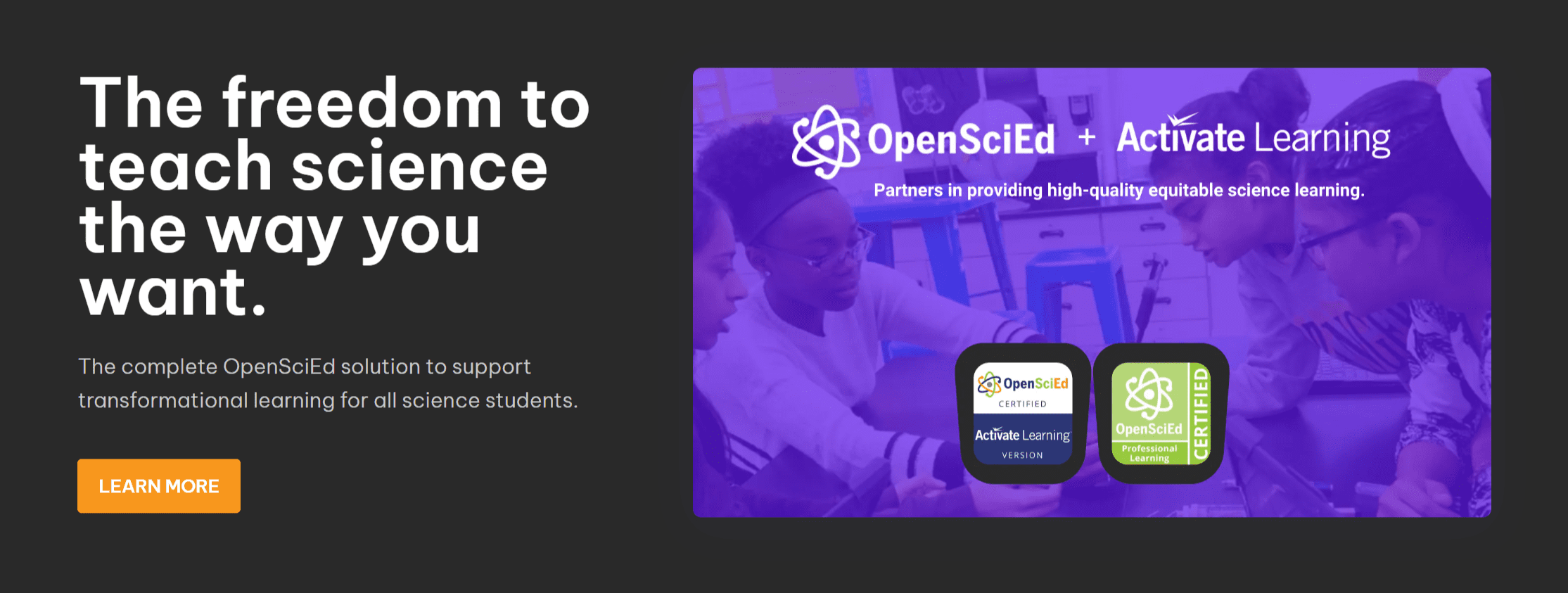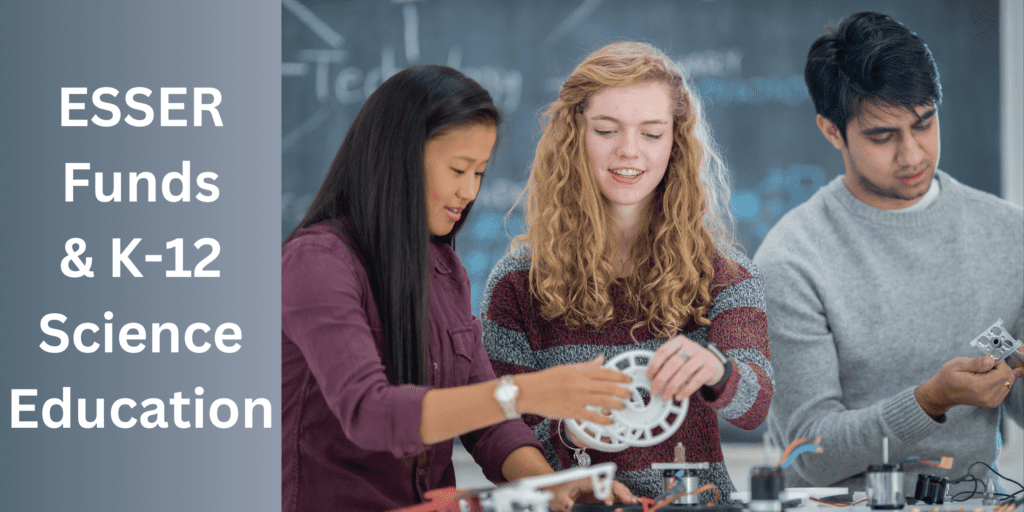Improving Learning Outcomes with OpenSciEd Student Assessments

Quick Take: The OpenSciEd curriculum helps educators keep their content current and provides opportunities for formative and summative assessment development.
With OpenSciEd, educators can be confident that they are providing their students with the best possible NGSS-aligned instruction. This, in turn, will help students build the skills and knowledge they need to excel in assessments and beyond.
Learning Loss and Learning Recovery
The return to the classroom from COVID-19 disruptions has been a slow and gradual process for many schools and districts.
As we move into the third school year in the new normal, educators are preparing for more challenges than ever before. One area of focus is student assessments - a critical thermometer for educators to monitor student progress and identify areas in need of improvement.
Parents and educators alike are growing alarmed that students who experienced learning loss during the pandemic will continue to fall behind without targeted interventions. A long-view assessment from the National Assessment of Educational Progress (NAEP) showed that the pandemic's impact on student education reversed learning rates by two decades.
As a result, there is an increased demand for more effective and efficient assessments that can provide actionable data to guide instruction. Parents want their children to head to their next stage of education on even footing with their peers, and educators want to be well-equipped to help all students succeed.
Recent Research on Student Performance Rings Alarms
Across the country, student performance has varied in the return to pre-pandemic levels. In some states - such as Virginia and Louisiana - assessment performance has returned to near-normal, while other states - like California and Connecticut - are dealing with significant declines in achievement.
One of the hardest-hit topics in many students' education has been science. A recent Florida report shows that less than half (48%) of fifth-grade students pass the 2022 science assessment. Similarly, Washington D.C. students suffered a 4% reduction in their reading proficiency - an essential skill for all branches of education.
But it's not all bad news! As schools pivot to new modes of instruction, there are many opportunities to enhance student assessments and improve outcomes. One such method is a turn toward a standard-focused curriculum. Programs such as the Next Generation Science Standards (NGSS) equip educators to turn to open-source, digital education opportunities to help students thrive in new assessment environments.
OpenSciEd is one such program - providing a comprehensive, research-backed science curriculum that meets NGSS standards. By using OpenSciEd units, teachers can be confident that their students are engaging with the most up-to-date and accurate content available.
How NGSS Curriculum such as OpenSciEd is Changing the Game
By creating engaging new curriculum programs aimed at helping students thrive in a new educational environment, Next Generation Science Standards (NGSS) programs are enhancing student assessments. These units are designed to provide real-world context for science concepts and allow students to build 21st-century skills such as data analysis and interpretation.
NGSS creates a framework that provides a 3D model for how students should be learning. It is also flexible enough to accommodate a variety of instructional approaches, such as project-based learning and inquiry-based instruction:
- Core Ideas: Students are introduced to and familiarized with essential science concepts.
- Crosscutting Concepts: These key ideas help students see connections between different concepts and how they work together.
- Scientific and Engineering Practices: Students learn to engage in scientific practices, such as asking questions and designing experiments.
By intertwining these three elements, the NGSS-aligned curriculum provides students with a well-rounded approach to learning that will prepare them for success in assessments and their future education and careers.
How OpenSciEd is Helping Students Thrive in NGSS-Aligned Environments
With the benefits of moving toward a more standard-focused approach clear, many educators are looking for programs to help them implement NGSS in their classrooms. OpenSciEd is one such program, providing comprehensive, research-backed units that are fully aligned with NGSS standards.
OpenSciEd takes proven NGSS practices and builds them into units that are easy for educators to use in their classrooms. The program includes:
- A library of digital and print resources, including an instructional coach guide, student materials, and an assessment bank.
- Digital learning platform offering easy access to units, assessments, and resources.
- Material-ready science kits for engaging and hands-on learning.
- Collaborative community for educators to share resources, ideas, and best practices.
Every OpenSciEd module is built on years of research into the topics that students must know to thrive in education and vocational settings. Plus, by distilling digital and print resources into an easy-to-use format, educators can be confident that they are providing their students with the most up-to-date and accurate content - updated in real-time in a fast-changing world.
OpenSciEd and Assessment Development - The Future of Educational Excellence
Not only does the open-source, digital format of OpenSciEd curriculum help educators keep their content current, but it also provides opportunities for formative and summative assessment development.
With OpenSciEd, educators can be confident that they are providing their students with the best possible NGSS-aligned instruction. This, in turn, will help students build the skills and knowledge they need to excel in assessments and beyond.
Using innovative technology to guide education, students can gain insight into their progress as they grow and learn. They can then feel more confident in their abilities, both in and out of the classroom.
OpenSciEd teachers have tremendous support and resources available to them including Professional Learning by Activate Learning and free materials and webinar replays on OpenSciEd's website (Approaches to Grading in the OpenSciEd Classroom).
Parental Assessment Engagement:
OpenSciEd brings parents into the equation by equipping them with the resources they need to understand their child's progress. This not only builds confidence in the student but also in the parent-child relationship.
A great example of how teachers can use OpenSciEd to include parents in student learning and assessments comes from Middle-school science teacher, William Bauer, who recently shared on Twitter how he uses engages parents and the broader community in student learning and assessment including sharing resources for parents and the video replay of a webinar he hosted on how to engage parents in OpenSciEd assessments.

The Future of Science Student Assessments
The future of student assessments is seeing a shift from standardized testing to performance-based assessments. This is in line with the NGSS standards, which emphasize student understanding and application of concepts over rote memorization.
Research supports this shift, showing that performance-based assessments are a more accurate measure of student understanding and skills. In addition, these types of assessments provide students with a richer learning experience, as they are often more engaging and relevant to real-world applications.
As the education landscape continues to evolve, it is crucial for educators to stay up-to-date on the latest research and trends in assessment. By doing so, they can be sure to provide their students with the most effective and meaningful learning experiences possible.
OpenSciEd is at the forefront of this shift, with its NGSS-aligned curriculum and assessments that are designed to promote deeper understanding and real-world application of concepts. As education continues to move from traditional standardized testing to more innovative digital assessments, OpenSciEd will be there to provide educators with the resources they need to ensure their students are successful.
If you're interested in learning more about how you can use OpenSciEd to assess your students' understanding of NGSS concepts, visit our website for more information or contact us at the form below today. We'd be happy to answer any of your questions!
* * * * *
.




